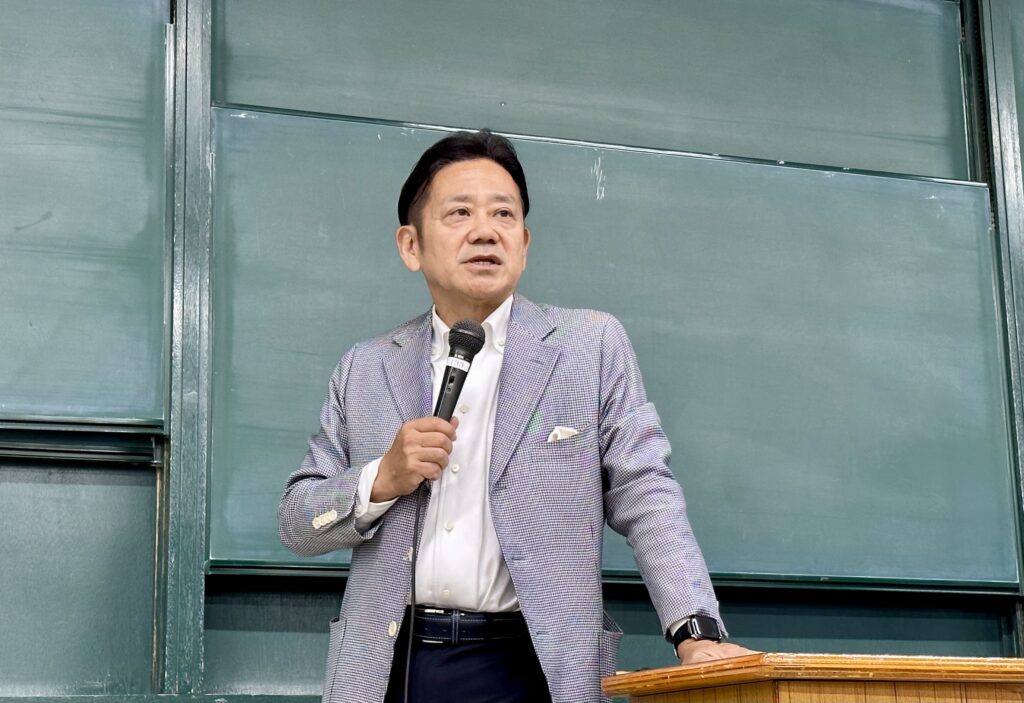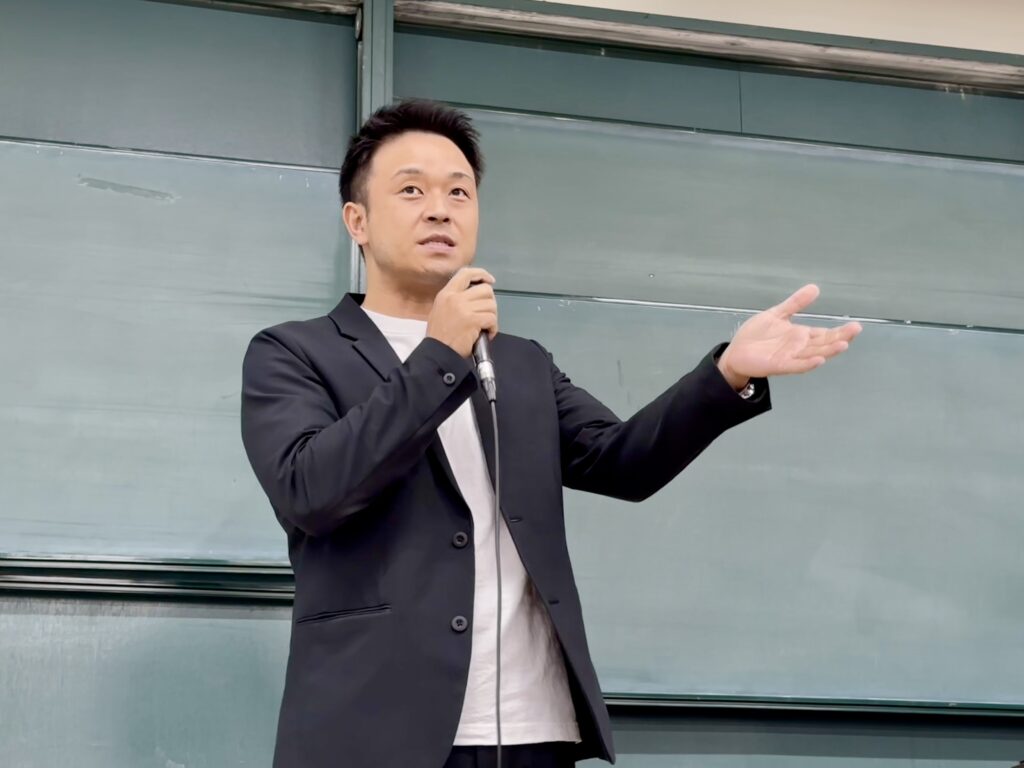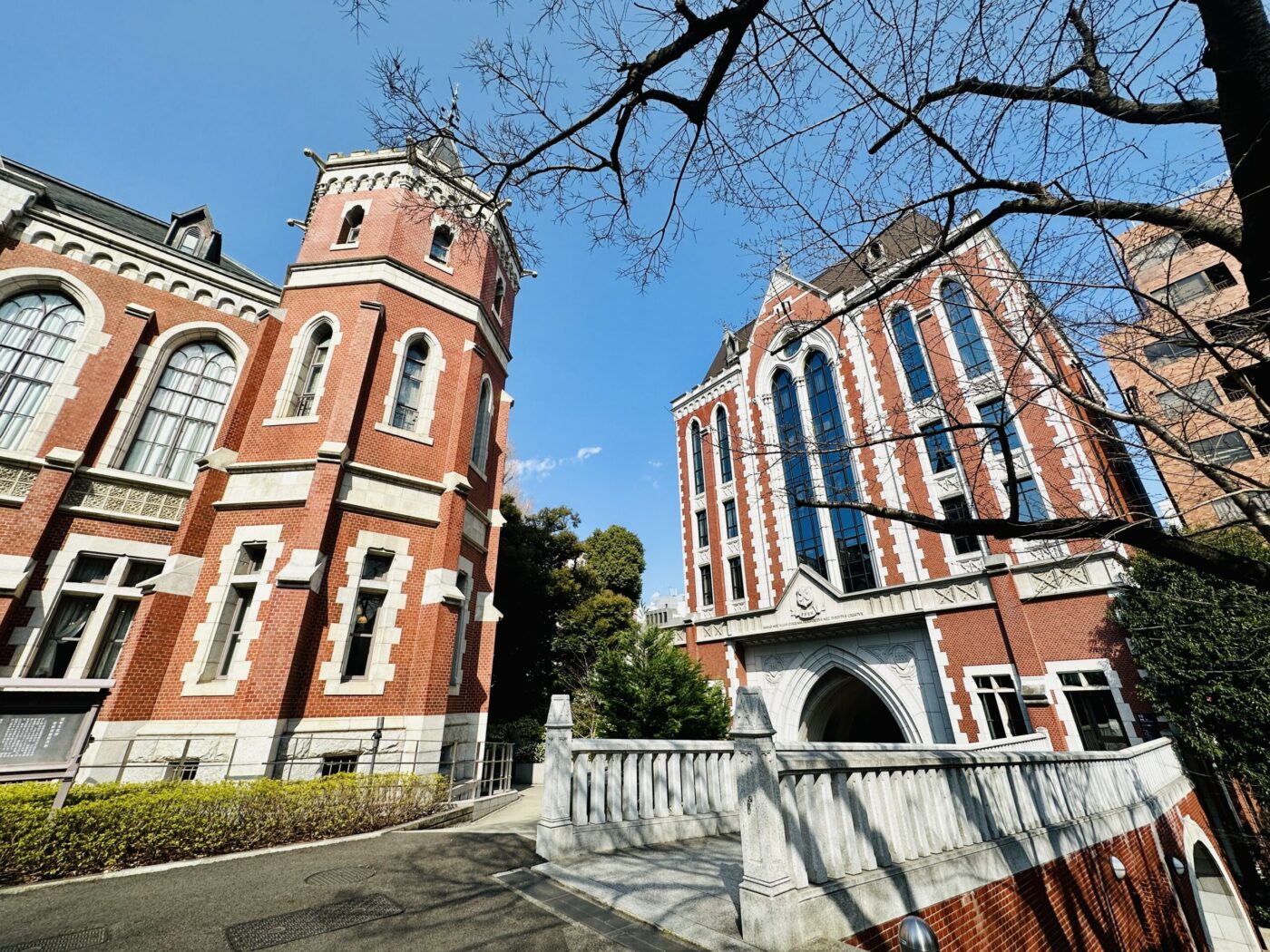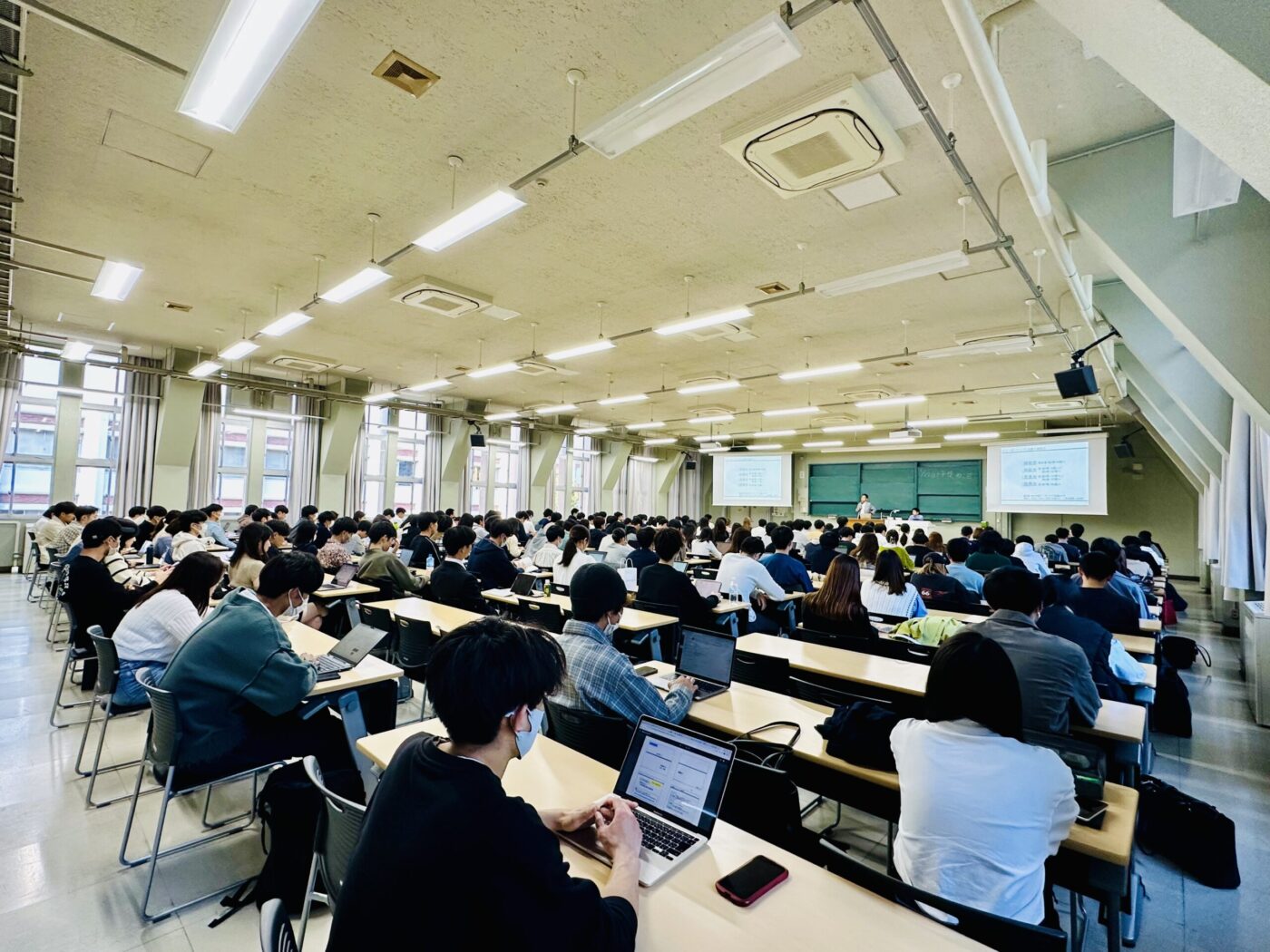Today’s lecture flow
▼Mr. Koyama, a working adult TA──About his own leadership during his MBA study abroad and his study at Fukuzawa Yukichi Memorial Bunmei Juku
▼Professor Tamura──What is “persuasiveness”, one of the four elements of leadership fundamentals?
▼Mr. Sugita──”Initiative” which is important in leadership (including group dialogue)
Learning of the students – Extracts from the reflection sheets submitted after the lectures
● Third-year student in the Department of Law, Faculty of Law
The fact that rhetoric, which underlies negotiation studies, is one of the longest-standing disciplines taught at Harvard and other prestigious universities with long histories and that its origins date back to ancient Greece is remarkable.We have learned that rhetoric, when abused, makes one a sophist; when used for good, one becomes a (sophisticated) philosopher, and we can turn into the latter by mastering the art of negotiation.Specifically, Barack Obama won the public’s praise by taking the three steps of (1) my story, (2) our story, and (3) the story of our actions, in which he embodied the three perfect ethos, pathos, and logos.This skill and cultivation of public narrative was also manifested in James Croft’s speech on LGBT.
I was also keenly aware that the retention of WILL and decision-making are of utmost importance in today’s world characterized by VUCA.I learned that backcasting, in which the purpose of one’s life or future image is determined first, and then near-term goals are set from that point back to the present, is a very useful method in the age of independence.Furthermore, when taking the first step from initiative to action, it is necessary to consciously guide oneself from the “circle of interest” to the “circle of influence,” and by focusing on the latter and realizing the discovery and resolution of issues, one can gain the trust of others.Finally, I have learned that it is most important to expand one’s circle of interest as much as possible during this time of university life and to work to expand the circle of influence that can only exist within the circle of interest.
● Fourth-year student, Faculty of Economics
What surprised me the most today was that my mindset changed dramatically when I told others about plans that I felt were troublesome or unpleasant and when I told them in a straightforward manner that I would do/do things that I didn’t want to do.When I was first told, “Let’s talk about the same thing, only with different endings,” I honestly had no idea what they were trying to accomplish.However, once I put it into practice, the unpleasant schedule of submitting the personal statement and taking the web test changed into a positive schedule of “I’m going to do it!Rather than being surprised at the change in their feelings about their plans, they may have been surprised at the fact that they could control their feelings with a single word, which may be a different kind of self-suggestion.Today’s group dialogue also allowed me to talk to people with interesting hobbies and backgrounds, and I learned something newI tip my hat to the high value of this class, which allows us to meet new people and expand our interactions every week.
In the next session, we plan to have President Kohei Ito visit us and conduct a “Dialogue with Leaders”.


 Twitter
Twitter Instagram
Instagram
